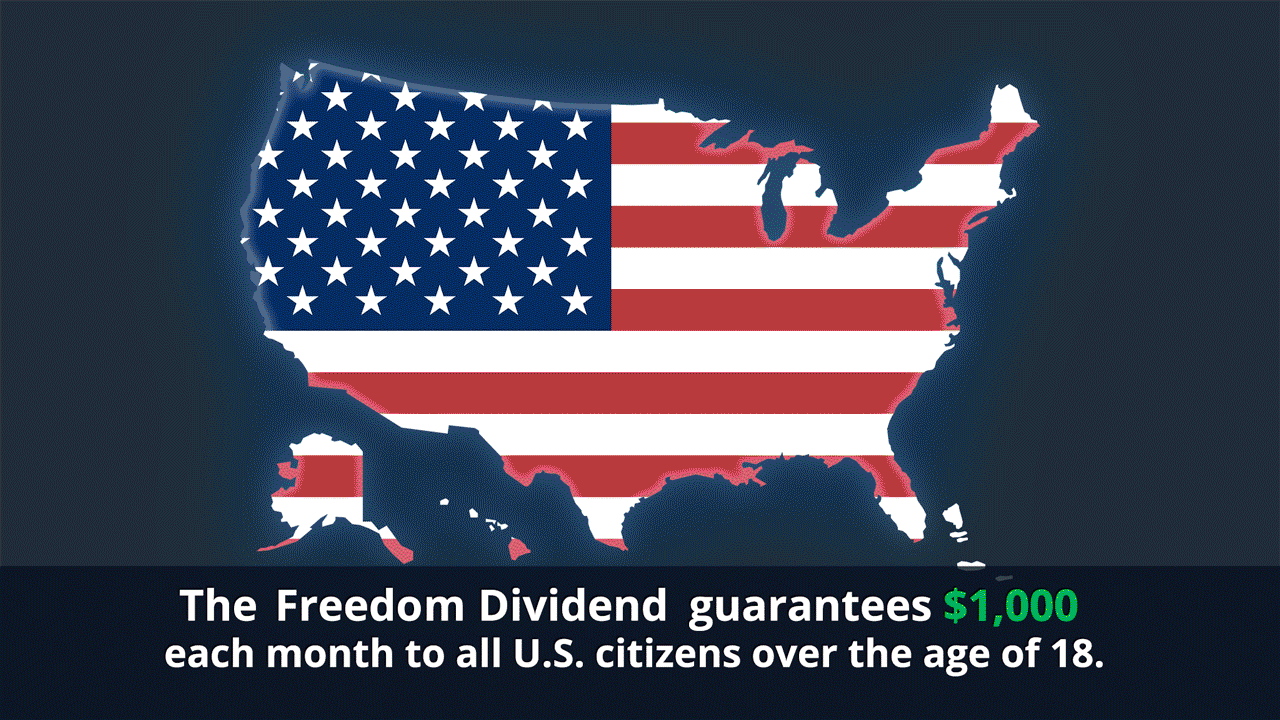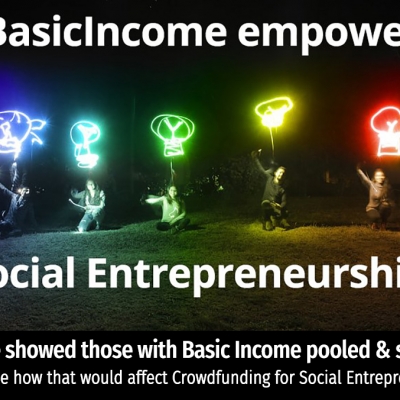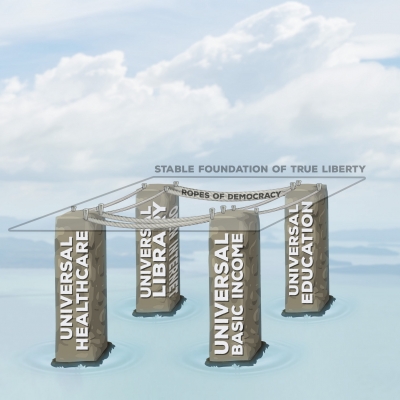Photo by MabelAmber
One of the candidates running for President, Andrew Yang, is proposing to ensure everyone $1000 per month, called a Freedom Dividend.
There are a wide variety of ways that a Freedom Dividend would empower women and strengthen entire communities: by reducing domestic violence and financial abuse by partners, by solving parenting issues and acknowledging care-work, by improving education, improving nutrition, and creating stronger relationships, among other positive impacts.
One of the most impactful ways a Freedom Dividend would make a difference is through empowering those who are victims of domestic violence and financial abuse.
When I was in college I met a woman who needed some help. She explained to me that she was being beaten, abused, and wanted to escape. She told me the number one thing she needed was money to escape her situation, and the second was transport. I explained she could use the school’s library internet to setup a PayPal account and receive money from relatives or friends no matter where they live. She didn’t know what PayPal was, but she did follow the suggestions… and she escaped her abuser.
But others are not that lucky to have a financial support group. Money is crucial to freedom for a victim of financial abuse because they are being economically oppressed. Financial abuse is when the abuser controls the victim's ability to acquire and use money. According to a Centers for Financial Security study, “financial abuse occurs in 99% of domestic violence cases” https://centerforfinancialsecurity.files.wordpress.com/2015/04/adams2011.pdf
This is why the Freedom Dividend would be impactful by providing an escape route for anyone stuck in abusive relationships. “Look at the statistics on domestic violence- financial dependency is one of the ways abusers control their victims. With a Basic Income tied to them, victims have more freedom to escape.” https://women4ubi.wordpress.com/ — @Women4UBI
Beyond that powerful impact, the Freedom Dividend will ensure economic empowerment of women through the financial freedom to seek better economic opportunities, get training, apply for work, or even start new business ventures.
There would be more room for the freedom of creativity and risk-taking ventures.
That’s exactly what has happened in UBI studies. In the experiment in India, women were some of the recipients that started new businesses and risk-taking ventures, often leading to the start of economic independence: “Women’s empowerment was one of the more important outcomes of this experiment" http://www.unicef.in/Uploads/Publications/Resources/pub_doc83.pdf
In similar UBI-like programs in Zimbabwe, cash-transfers led to increased economic activity and more social cohesion http://www.cashlearning.org/downloads/skovdal-et-al-2013---ct-and-social-acceptability.pdf
"the programme had enabled them to set up small scale income generating activities, transforming their livelihoods by strengthening household assets."
"The programme was said to address social inequalities creating more unified and socially cohesive community contexts.”
In Zambia and India it was shown that cash-transfers increased economic activity and productivity. https://ubi.earth/ubi-research
“When peoples basic, fundamental needs are met, when they are not working for survival, they are able to do more with their lives. One of the areas where UBI would shine is allowing women to pursue their own financial ventures.” https://women4ubi.wordpress.com/
Additionally, the Freedom Dividend would make a significant impact in acknowledging and paying for care work.
It would acknowledge at-home care work such as raising a child, and supporting elder or disabled care.
“the market system insists that mothers are not economically productive members of society, and, therefore, they do not get paid a salary.” https://www.livableincome.org/awhywomen.htm
“Basic income recognizes and compensates unpaid caregivers of all types, and at all levels. It acknowledges that caregiving is real work, even if it isn’t “paid employment”. Right now, caregivers are actively excluded from most social benefits. That needs to change.” https://women4ubi.wordpress.com/ — @Women4UBI
The Freedom Dividend acknowledges the work of single at home mothers.
Women will have more freedom when it comes to deciding on having a child or not.
They will also have more freedom when it comes to parenting.
Increasingly in an economy that begins to favor gig-work and temp-work, couples living in a household are both required to spend the time to obtain a stable income. Sometimes more than one job. That means little to no time to stay at home caring for a child, effectively spending more money on childcare and more time spent at work, away from their children.
Paying for time for better parenting is economic empowerment and that extra time spent with children is setting a good example for them. This means better physical and mental health for children, better schooling, and more chance of keeping children out of trouble—all with long-term benefits for both the parents and their children.
There have been cash-transfer studies in the USA that show “a significant increase in other quality-of-life benefits (mental and physical health, education outcomes, parenting, reduced criminal activity, etc.).” http://www.marinescu.eu/Marinescu_UBI_review_2017.pdf
"School attendance, grades, and test scores for the children of negative income tax recipients were typically higher than the control population, especially for younger and poorer children."
"an improvement in parenting likely contributed to improved child outcomes among families receiving the payments"
Beyond better schooling and generally providing a healthier environment to raise children, the Freedom Dividend will help parents pay for better nutrition for themselves and their children.
In the Unicef study in India it was found that “productive assets increased income which increased access to nutrition”
“Interestingly, the improvement in z-scores for girls was higher in SEWA villages suggesting that having a voice organization for women can heighten the impact that basic income transfers can have on nutritional outcomes, particularly that of girls.”
http://www.unicef.in/Uploads/Publications/Resources/pub_doc83.pdf
The cash-transfers “showed positive impacts on the quality of nutrition”.
A variety of UBI studies are available for anyone to read that show examples of what a Freedom Dividend would do for women and how that can be applied here in America with the Freedom Dividend.
Ensuring women have cash to spend when they need it would empower and strengthen entire communities. It would reduce domestic violence and financial abuse and provide a means to escape abusive situations. It would significantly improve parenting, educational outcomes, and would acknowledge care-work. It would create a better more cohesive community, it would create stronger relationships and lead to less crime, and it would prepare healthier children that are ready to take on a challenging future.

Read more of my writings published about Universal Basic Income:
Comprehending ‘Universal Basic Income’
Universal Basic Income is feasible.
Read about the existing evidence supporting UBI: https://ubi.earth/ubi-research
______________________________________________________________________________________
Please consider supporting my writing and other activities: https://www.patreon.com/mark4ubi



